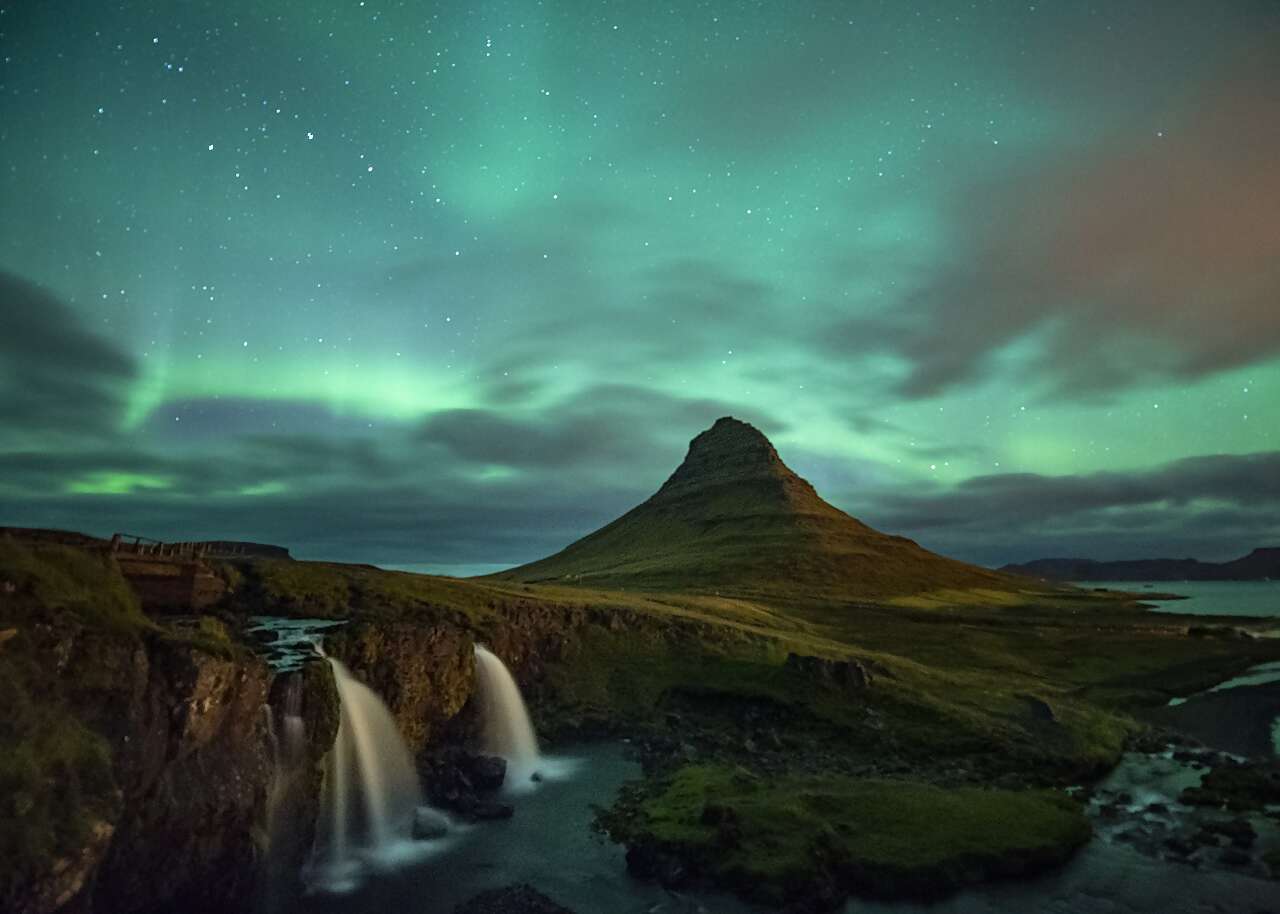
Celestial Showstopper: Think Iceland is all volcanoes and waterfalls? Think again. With dark skies, open horizons, and dramatic landscapes, the Northern Lights sparkle brighter than your last phone screen—and there’s even a total solar eclipse on August 12, 2026 you’ll want a front-row seat for. Dive into the cosmic magic here.
The Magical Skies of Iceland
Iceland’s skies are a dream for photographers, stargazers, and nature lovers. With vast, unobstructed horizons, minimal light pollution, and dramatic landscapes, it’s the perfect stage for celestial wonders. Whether it’s the vibrant Northern Lights, star-filled winter nights, or a rare total solar eclipse, Iceland offers a front-row seat to the universe.
Why Iceland is a Skywatcher’s Paradise
- Unobstructed Horizons – Open vistas create perfect viewing conditions.
- Low Light Pollution – Enhances clarity and contrast for stargazing and astrophotography.
- Dramatic Landscapes – Black sand beaches, volcanic fields, glacier lagoons, and geothermal pools create a breathtaking backdrop for celestial events.
- Favorable August Weather – Mild temperatures and long daylight hours make for ideal summer skywatching.
The Northern Lights in Iceland
Winter nights in Iceland are legendary for the aurora borealis — vibrant curtains of green, purple, and pink that dance above glaciers, volcanic ridges, and black sand shores.
- Best Time to Visit: September to April
- Viewing Tips: Check real-time aurora forecasts from experts like Iceland at Night.
- Top Locations: Remote Highlands, Westfjords, and coastal regions far from city lights.
Dark-Sky Stargazing in Iceland
Beyond the Northern Lights, Iceland offers some of the world’s best dark-sky viewing.
- Best Seasons: Late summer to early spring for clear, star-filled skies.
- Where to Go: Just minutes from Reykjavík or deep into the Highlands for pristine, artificial-light-free horizons.
- What to See: Milky Way, Orion, Jupiter, and more — all with the dramatic Icelandic terrain as your foreground.
The Total Solar Eclipse – August 12, 2026
This rare astronomical event will be Iceland’s first total eclipse since 1954. The path of totality will cross the Westfjords, Snæfellsnes Peninsula, Reykjavík, and Reykjanes Peninsula.
- Westfjords: Remote sites like Straumnes Lighthouse and Látrabjarg offer over two minutes of totality.
- Snæfellsnes Peninsula: View the eclipse with stunning volcanic backdrops, including Kirkjufell Mountain and Snæfellsjökull Glacier.
- Reykjavík: Even the capital will witness about one minute of total eclipse — enough for a surreal twilight in full daylight.
Join Our Iceland Eclipse Tour – August 8–15, 2026
Experience Iceland’s skies like never before with our guided Eclipse Tour.
✔ Best viewing locations
✔ Expert-led astronomy sessions
✔ Immersive cultural and scenic excursions

